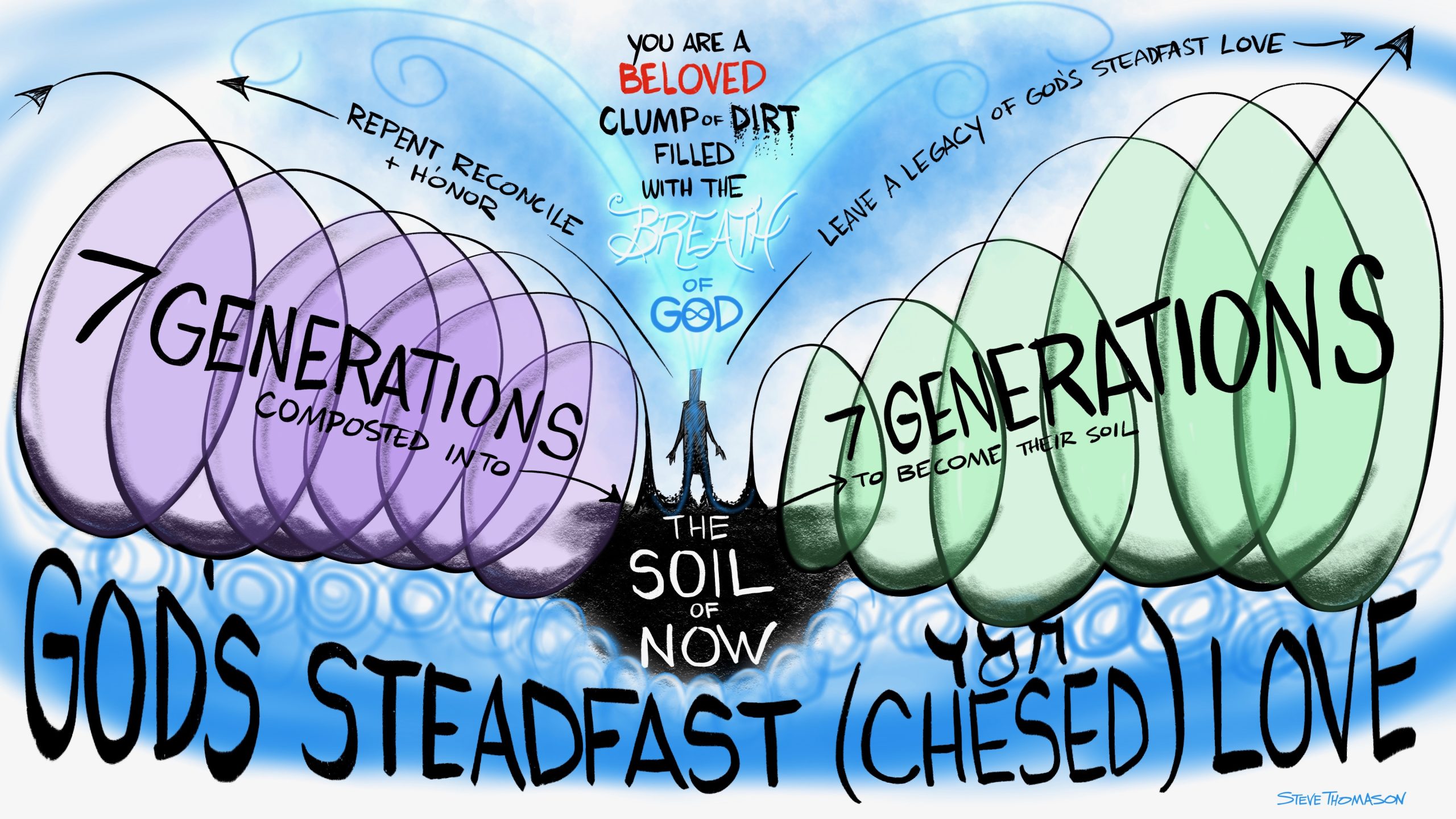
Today is Halloween—technically, All Hallows’ Eve—and I want to reflect on why we are so fixated on the day before a thing in our society.
All Hallows’ Eve, according to European legend, is the night before All Saints’ Day. The focus of the whole event should really be on tomorrow: the day when we recognize the saints who have come before us, honor them, and give thanks for the legacy they’ve left for us.
The legend in Europe was that because All Saints Day was so holy, the night before it all the evil spirits went wild. It was believed that the “thin space” between the eternal and the temporal grew so thin that the spirits were able to manifest more easily in our corporeal world. The evil spirits would roam about the countryside terrorizing people. That’s where the tradition of dressing up as an evil spirit came from—so you could blend in and they wouldn’t bother you.
Of course, in American consumerist culture, we have taken away the meaning of this event and turned it into a fun little night where children dress up in costumes. It’s the one night where it’s socially acceptable to knock on a stranger’s door and ask them to give you candy.
Now, I’m not against kids having fun, dressing up, and neighbors being hospitable. I love it. Do it. Have fun. Happy Halloween!
But I do want to focus on why, in our society, we get so fixated on being almost, but not quite.
The Build-Up vs. the Meaning
I think about this around Christmas as well. We spend two months in our society building up to Christmas—worshipping the god of consumerism, buying presents, having parties, preparing for the big event, and watching sentimental movies about homecoming and a saccharine version of love.
By the time the actual Christ Mass arrives on Christmas morning, we don’t want to go to church or do anything. We want to stay in our pajamas, and the big event is opening the presents we purchased for each other. In reality, the Christ Mass is a 12-day party where you give gifts once a day for 12 days. Most people don’t even remember that.
It’s similar with All Hallows’ Eve. We put all this energy into purchasing candy, decorating, watching scary movies, and focusing on the spookiness, the scariness, and the occult-ish nature of the spiritual realm.
Most people in our society probably don’t even know that tomorrow is All Saints’ Day.
A Different Way to See It: 14 Generations
For the rest of this reflection, I want to focus on the image I place at the top of this post as a way to think about All Saints Day.
A few years ago, I had an encounter with a North American Indigenous spiritual teacher who opened my eyes to something central in her culture. Core to their spirituality is the recognition that they carry with them, in each moment, 14 generations.
They think about the seven generations that have come before them—those who have tilled the soil, if you will, and become the compost from which their life grows and flourishes. All of those stories—good, bad, and ugly—have shaped this moment. In each moment, they both honor those elders and reconcile with those elders the things that need reconciling.
At the same time, they are aware that every decision they make is shaping what will come for the next seven generations. Every choice doesn’t just impact me—it creates reverberations and becomes the compost of the soil from which my children, their children, and on for seven generations will reap the results.
I love that. And I think that is truly the spirit of All Saints’ Day.
Rooted in Chesed
As a follower of Jesus, rooted in the Hebrew Bible as mediated through Jesus Christ and 2,000 years of Christian history and spirituality, what brings this all together for me is chesed—the Hebrew word for the steadfast love of God; the trustworthiness and faithfulness of God’s love and promise that God will be with us through the ups and downs, through our good choices and our horrible choices.
A Prayer for All Hallows’ Eve
So, this All Hallows’ Eve, my prayer for us as a society is this:
Maybe we could stop fixating on the almost—on the build-up to the main event, which is actually a distraction. Maybe we could spend less time purchasing things and preparing the party, and pouring so much energy into the night before the main event.
What if we spent more time on the event itself? On All Saints’ Day—
- honoring the elders who have gone before us,
- considering our ways and how they impact those around us now,
- and how they will impact those who come after us?
May this All Hallows’ Eve prepare us for the bigger picture.


